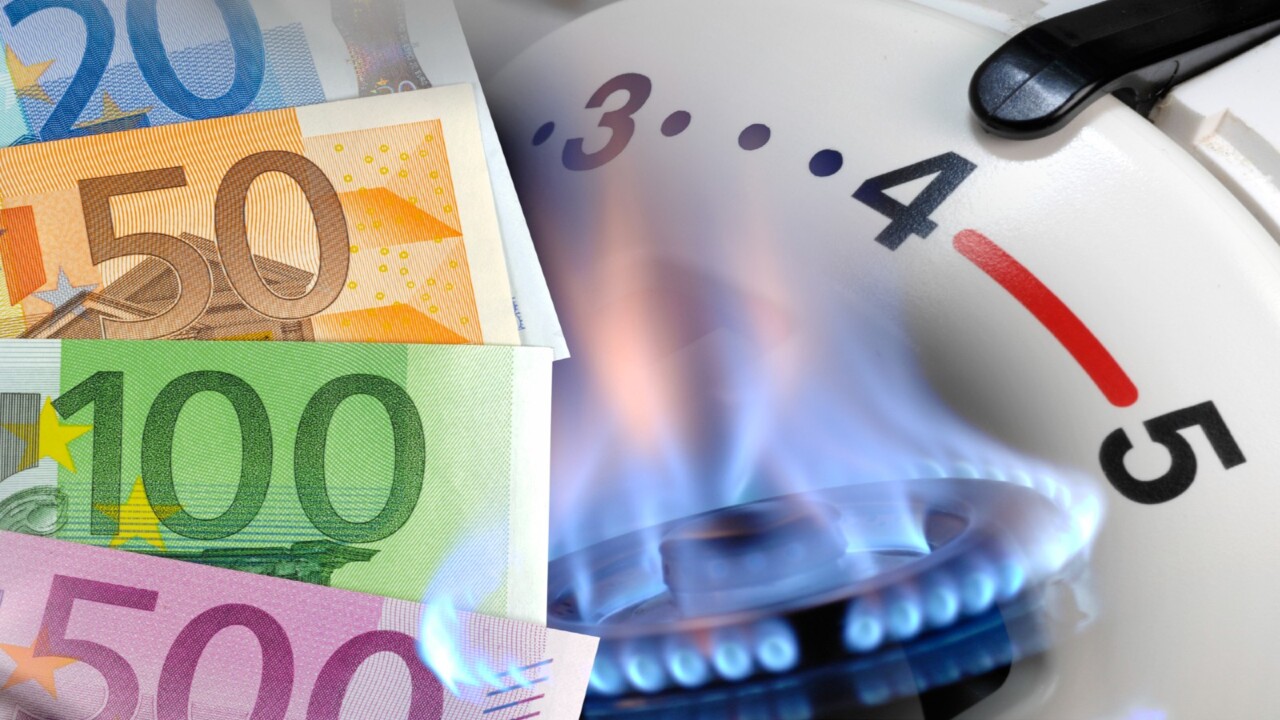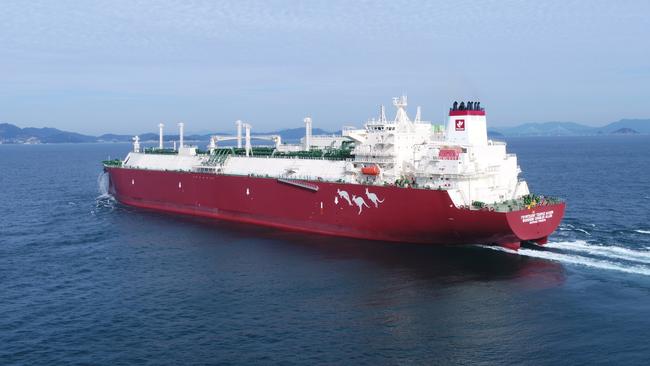Global fears over strikes in LNG pipeline
The threat of strikes at three of Australia’s biggest LNG plants has sparked fears of a fresh global energy shock, as gas companies are warned to tread carefully dealing with unions.

The threat of strikes at three of Australia’s biggest LNG plants has sparked fears of a fresh global energy shock, as gas companies were warned to tread carefully dealing with unions linked to the Albanese government.
Gas prices in Europe surged by 40 per cent on Wednesday night, the largest jump since Russia’s invasion of Ukraine, over fears unions could throttle 10 per cent of global export supplies over pay claims.
Woodside Energy was preparing to activate contingency plans to ensure industrial action did not derail Australia’s LNG exports, with the West Australian government keeping watch on the unfolding drama upending already tense European gas markets.
The Offshore Alliance – made up of the Australian Workers Union and Maritime Union of Australia – has won approval from workers to take protected industrial action in Western Australia on Woodside’s North West Shelf facility. Workers on the giant Gorgon and Wheatstone LNG projects owned by Chevron will separately vote to take action, setting the scene for a drawn-out standoff over pay and conditions.
The European gas price hike was sparked by fears workers at the three plants would walk off the job, puncturing a hole in global supplies should industrial action force a shutdown of the giant gas facilities.
Although prices fell about 8 per cent on Thursday night (AEST), they were still well up on earlier in the week.
“A shutdown of North West Shelf, Gorgon and Wheatstone LNG would remove 41 million tonnes of LNG from the market, or around 11 per cent of global supply,” Bernstein analysts said. “Given the fragility of global gas markets, this would result in a significant upward spike in global gas prices.”

WA Industrial Relations Minister Bill Johnston said the government was monitoring the situation. “We note the decision by the unions,” he said. “If there was to be industrial action, we would respond in an appropriate manner.”
A 76-day wage dispute at Shell’s Prelude LNG facility off northwest Australia last year caused ructions in international gas markets, denting Australia’s reputation as a safe source of supplies among growing energy security concerns.
Woodside and Chevron needed to tread cautiously, according to industry analyst Saul Kavonic, given the support unions have from the Labor government.
“The LNG companies need to tread cautiously as there is a political overlay here too, given the support unions have from Australia’s new Labor government, and this may not be a battle worth fighting too hard,” he said.
Mr Kavonic said the situation highlighted the importance of Australian LNG for global energy security, “with even the possibility of a disruption to Australian gas supply causing large price spikes in Europe”.
Woodside said it had been in a bargaining process since April with the AWU and the Electrical Trades Union, but cautioned it was preparing for a Plan B if a deal could not be struck. “As part of normal business planning, we have contingency plans to deal with challenges such as cyclones, pandemics and a range of other potential disruptions,” a Woodside spokeswoman said. “We hope that activating these plans will not be necessary.”
Chevron said it would seek outcomes that were in the interests of both employees and the company.
CBA said the risk to international gas markets was mounting if a compromise could not be found. “With industrial action at Shell’s Prelude Floating LNG facility lasting 76 days last year, gas markets are justifiably worried that industrial action at LNG facilities operated by Chevron and Woodside may face a similar outcome if union talks fail to deliver an agreement,” said CBA analyst Vivek Dhar.
While Australia exports limited gas supplies to Europe, any clamp on output to its Asian customers would see the two go head-to-head competing for tight supplies in the global market.
“Any such strike could disrupt about half of Australia’s LNG export capacity and cause many Asian buyers to look elsewhere for their cargoes,” said consultancy Rystad Energy. “This price surge reflects the likelihood of the strike materialising, impacting LNG supplies during the ongoing heatwaves, despite the ample gas inventories in Europe.”
The global gas market has tightened significantly in recent years after Russia’s invasion of Ukraine led Europe to seek alternatives to historically cheap supplies from Moscow.
Negotiations between Woodside and unions representing workers on the company’s LNG platforms are continuing in the wake of employees winning approval for potential legal industrial action for the first time in decades. The Offshore Alliance said further negotiations with Woodside were scheduled for Tuesday. Protected industrial action options ranged from refusing to load tankers or vessels with LNG or condensate to complete work stoppages.
The unions said Woodside’s employees had been covered by individual contracts that failed to provide workers with job security, a say in their rostering arrangements, certainty in key employment terms and industry standard pay and conditions.
Offshore Alliance members at Chevron have still not reached agreement on job security, agreed rosters, mutual agreement on transfers to other Chevron worksites, mutual agreement on the working of overcycle, training standards, travel arrangements and rates of pay.
Members are seeking remuneration outcomes that align with benchmark industry standards, whereas Chevron’s proposed remuneration terms are currently lower than a number of Tier 2 oil and gas operators operating in Australian waters.
Offshore Alliance spokesman and AWU West Australian secretary Brad Gandy said gas producers operating in Australian waters needed to come to terms with the fact their workers wanted an EBA with industry standard terms and conditions of employment.
“Gas producers like Woodside and Chevron might be used to throwing their weight around in countries with weak industrial laws but Australian workers have fought for over 100 years for strong industrial rights,” he said “The sooner these huge, profitable gas producers approach these negotiations pragmatically and get back around the bargaining table the better.”
He said the workers were willing to take industrial action and the union “sincerely hopes that Woodside and Chevron have learned from the mistakes” Shell made last year, when the 76-day strike cost the gas giant $1.5bn in lost production.




To join the conversation, please log in. Don't have an account? Register
Join the conversation, you are commenting as Logout